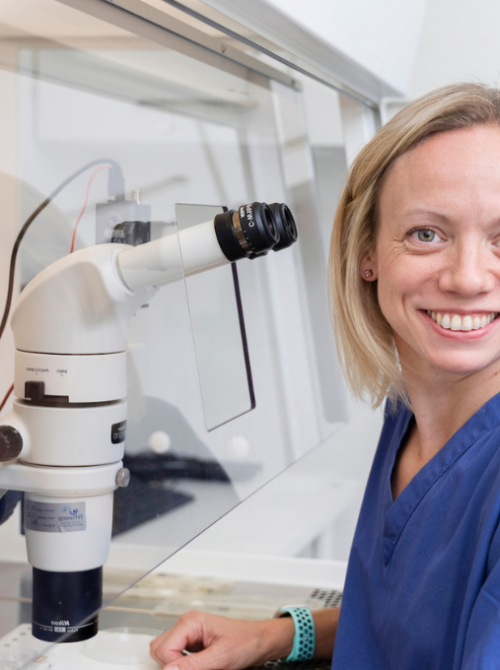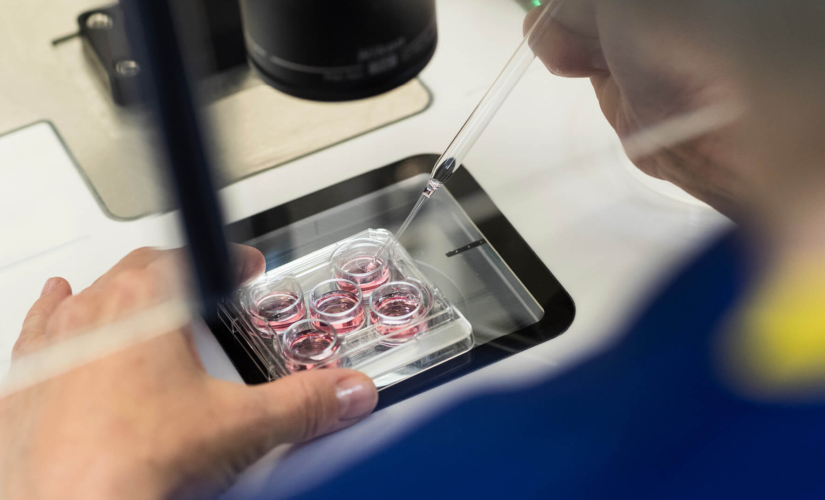What is the difference between IUI vs IVF?
When it comes to starting or growing your family, it’s completely natural to have questions and concerns about the options available. Fertility treatments like IVF (In Vitro Fertilisation) and IUI (Intrauterine Insemination) are commonly discussed, but the differences between the two can often be unclear. This guide aims to provide clarity on these two treatments, helping you make decisions about the fertility treatment path that feels right for you.
What is IUI?
Intrauterine Insemination (IUI) is a relatively straightforward fertility treatment, often considered a first step for couples or individuals looking to start their family. The treatment involves placing sperm directly into the uterus around the time of ovulation, which can increase the chances of fertilisation. IUI can be done using partner sperm or donor sperm, depending on what is most suitable for you.
The process starts with hormone monitoring to track your ovulation. Once ovulation is able to be determined, the sperm sample is produced or thawed (if frozen) and prepared in the lab, ensuring it’s of the highest quality for the best chances of success. The sperm is then gently injected into the uterus using a small catheter. The procedure is quick, minimally invasive, and often does not require anaesthesia, making it more comfortable for many people.
Who is IUI recommended for?
IUI is often chosen for couples experiencing mild fertility challenges, such as irregular ovulation or mild male infertility, and can also be a first choice for same-sex couples or single women using donor sperm. For many, it provides a non-invasive, cost-effective option that brings hope without the need for more complex treatments.
What is IVF?
In comparison, In Vitro Fertilisation (IVF) is a well-known fertility treatment in which an egg is fertilised outside the body, in a laboratory dish, before being transferred to the uterus. IVF typically involves several steps to help ensure the best possible chances of success.
The process begins with hormone therapy to encourage the ovaries to grow multiple follicles which will then hopefully contain mature eggs. Once the follicles are ready, the eggs inside are carefully collected in a procedure called egg retrieval. These eggs are then fertilised with sperm in the laboratory, and the embryos are monitored closely, in an incubator, as they develop. After a few days, the best quality embryos are selected and carefully transferred into the uterus, if suitable for the individual.
While IVF involves a number of steps, it is a procedure that is tailored to your individual needs, with each stage carefully planned to offer the best chance of success.
Who is IVF recommended for?
IVF is typically recommended for individuals or couples who are facing more complex fertility challenges. This includes those with blocked fallopian tubes, low sperm count, hormone deficiencies, or unexplained infertility. It is also a common option for individuals over the age of 35, as fertility can naturally decline with age.
What are the key differences between IUI vs IVF?
There are several key differences between IUI and IVF, and understanding these can help you decide which treatment might be best for you.
- Cost and Complexity: IVF tends to be more costly than IUI due to the extensive medical interventions involved, such as hormone stimulation, egg retrieval, and laboratory fertilisation. IUI, on the other hand, is considered a more affordable and less invasive procedure. You can find out more about the cost of fertility treatment here.
- Success Rates: IVF generally has higher success rates than IUI, particularly for individuals with more complex fertility issues. However, success rates vary depending on age, medical history, and other factors. You can read more about success rates at Evewell here.
- Procedure: IVF involves several steps, making it a longer, more complex process. In contrast, IUI is a simpler procedure that is less invasive and quicker compared to IVF.
It’s important to note that your fertility journey is deeply personal, and our expert team at Evewell are here to discuss these options with you, guiding you to the treatment that’s right for you.
What factors might influence your IVF vs IUI decision?
When deciding between IVF and IUI, several factors will play a role in determining the best path for you. These factors can include:
- Age: If you’re over 35, you may have a higher likelihood of success with IVF due to age-related fertility decline.
- Fertility history: IVF is often recommended for more complex issues that are identified during your initial fertility tests.
- Overall health: Any underlying health conditions may also affect which treatment is most suitable.
- Emotional well-being: It’s important to consider how you feel about each option, as IVF can be more physically and emotionally intensive.
- Personal preferences: Your comfort with the procedures, and your preferences regarding invasiveness and treatment steps, can influence your decision.
- Financial considerations: IVF can be more costly than IUI, so it’s important to factor in financial aspects when making your decision.
How can Evewell support you with your IUI vs IVF decision?
At The Evewell, we believe in taking a holistic approach to fertility care, considering not only your medical history but also your emotional well-being, personal preferences, and long-term goals. We know that the financial aspects of fertility treatment are an important consideration too. We’re here to support you in understanding the potential impact of these choices on your fertility journey and help you make a decision that feels right for you, not just medically but emotionally too.
If you’re ready to take the next step, we encourage you to book a consultation with one of our experts, who will talk you through all your options and provide advice tailored to your personal situation. We appreciate that no two journeys are the same, and we’re here to support you with expertise, care, and compassion. We look forward to being part of your journey.




